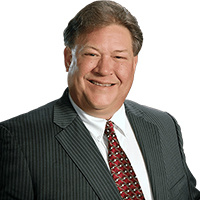 Coushatta Felony Lawyers, Louisiana
Coushatta Felony Lawyers, Louisiana
Sponsored Law Firm
-
 x
x

Click For More Info:
-
Babcock Trial Lawyers
10101 Siegen Ln #3-C Baton Rouge, LA 70810» view mapCriminal Defense We Want Your Injury Claim PAID NOW!
At Babcock Trial Lawyers, we work for our clients, maintaining our reputation of excellence as criminal defense & personal injury lawyers in Baton Rouge.
225-500-5000
Not enough matches for Coushatta Felony lawyer.
Below are all Coushatta Criminal lawyers.
Sponsored Lawyers
1-10 of 30 matches
Criminal, Divorce, Child Custody, Family Law
Dhu Thompson is a criminal defense, family law, and catastrophic injury lawyer in Louisiana. After graduating from Southern University Law School in 2000, Mr. Thompson worked for the Louisiana Department of Insurance, representing the agency in litigation matters before district courts and administrative law tribunals. Two years later, he joined the Orleans Parish District Attorney's Office as an Assistant District Attorney. He advanced to become an original member of the Special Homicide Offender Targeting Unit, a task force established to screen and prosecute at trial career criminals and homicide offenses. His trial experience included numerous convictions for first and second-degree murder. Mr. Thompson joined the Caddo Parish District Attorney's Office in 2004. He has successfully tried hundreds of cases, including the prosecution of offenses such as armed robbery, aggravated rape, and murder. After two years, he was promoted to Section Chief of Section One. As a Special Assistant District Attorney assigned to homicide and violent offender prosecutions, Mr. Thompson prosecuted many high profile cases, including the case of State v Brian Horn, who was convicted of the heinous murder of 12-year-old Justin Bloxom. Mr. Thompson was the lead prosecutor in the successful prosecution of Michael Kevin Hailey, which is referenced in the book Among Murderers and Madness. Mr. Thompson has been in civil practice since 2006. In 2012 he opened his own civil litigation practice in Shreveport. He has litigated over 100 jury trials in his litigation career, including civil, criminal prosecution, and several death penalty prosecutions. In 2014, he was the only attorney in Louisiana to secure a death penalty conviction in a criminal trial and a six-figure verdict in a civil jury trial. His appellate practice includes successful writs to the Second Circuit Court of Appeal and the Louisiana Supreme Court. Mr. Thompson is also a frequent lecturer at police academies, colleges, and local civic organizations on topics of current law and liability. Mr. Thompson is active in the Shreveport/Bossier community. He is a member of the Louisiana Bar Association, Shreveport Bar Association, American Association for Justice, Louisiana Association for Justice, The Downtown Rotary Club, Optimist Club, Southern Hills Business Association, and North Market Business Association. Mr. Thompson is a member of the downtown First United Methodist Church. He is married to Calli Hall Thompson and resides in Shreveport, where they are raising their two children.
(more)Criminal, Personal Injury, Family Law
Practicing law for more than 40 years, J. Ransdell Keene is a trusted legal ally for clients throughout the Shreveport area and across Louisiana. As a former U.S. Attorney, Mr. Keene has a broad perspective on the law. He has a proven record of success handling cases in the areas of personal injury, family law, criminal law, estate planning, tax law and SSDI.
(more)Divorce & Family Law, Criminal, Accident & Injury, Adoption, Estate
Mark D. Frederick has over 20 years of legal experience, enabling him to handle the demands of your case regardless of the complexities involved. As your attorney, Mr. Frederick will advocate strongly on your behalf to protect your rights and interests while working hard to achieve the positive results you expect. For high-quality assistance and support for your serious legal matter from an attorney you can trust, you can contact the Law Offices of Mark D. Frederick, LLC, to schedule a consultation about your case.
(more)Divorce & Family Law, Estate, Accident & Injury, Business, Criminal
THOMAS A. BORDELON was born in San Antonio, Texas on December 6, 1959. Mr. Bordelon graduated cum laude from Louisiana State University at Shreveport, where he was named recipient of the University Award in Economics, the highest award given by the faculty for outstanding achievement. Mr. Bordelon received his law degree from Louisiana State University Law Center in Baton Rouge. He was admitted to practice in 1993. He is a member of the Shreveport and Louisiana Bar Associations, and the Louisiana Association of Defense Counsel. He is also a member of the Harry Booth Inns of Court. Mr. Bordelon is involved in civil and criminal litigation, with extensive trial experience in personal injury, medical malpractice, product liability, automobile and casualty insurance, family law and property. He is admitted to practice in all Louisiana courts, as well as the United States Western District and Fifth Circuit Court of Appeals. He has also served as an adjunct professor of law at LSU in Shreveport.
(more)


 Stephen Babcock Baton Rouge, LA
Stephen Babcock Baton Rouge, LA Practice AreasExpertise
Practice AreasExpertise




